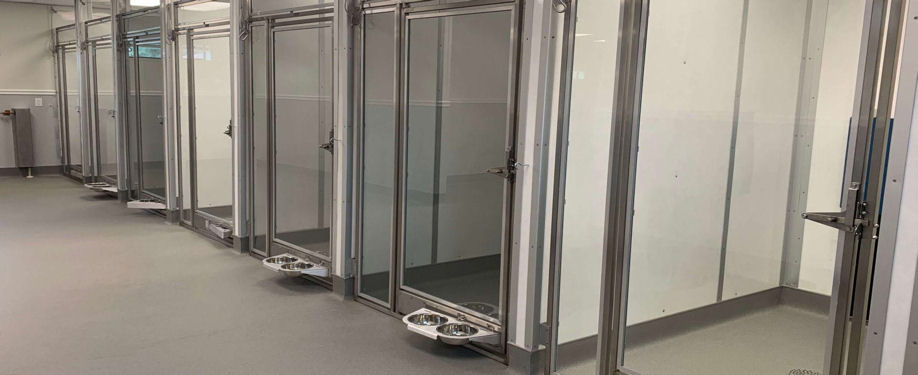Modular Buildings for Veterinary Clinics

Designing modular buildings for veterinary clinics requires careful consideration of various factors to ensure optimal functionality, efficiency, and comfort for animals and caregivers. Every design aspect is crucial in creating a safe and welcoming environment for veterinary care, from layout and flow to specialized equipment and environmental controls. Modular Genius experts have extensive experience in this area, and we’d like to share some key design considerations.
Animal Welfare and Comfort
Animal welfare is a top priority in veterinary facilities, and the design should prioritize the well-being and comfort of patients. Modular veterinary clinics should include separate waiting areas and treatment rooms for different species to minimize stress and ensure appropriate care. Comfortable and non-slip flooring, natural lighting, and soothing color schemes can help create a calming environment for animals and reduce anxiety during veterinary visits.
Functional Layout and Workflow
Efficient workflow is essential in veterinary clinics to optimize patient care and staff productivity. Modular designs should incorporate a logical layout that facilitates smooth patient flow from check-in to examination, treatment, and discharge. Consideration should be given to the placement of workstations, storage areas, and treatment zones to minimize unnecessary movement and maximize efficiency for veterinary staff.
Equipment and Technology Integration
Modular veterinary facilities should be equipped with state-of-the-art equipment and technology to support various diagnostic and treatment services. From digital radiography and ultrasound to surgical suites and laboratory facilities, the design should accommodate the practice’s specific needs and ensure seamless integration of equipment into the modular units. Proper ventilation, electrical outlets, and data connectivity are essential equipment placement and installation considerations.
Infection Control and Biosecurity
Maintaining a clean and hygienic environment is crucial for preventing the spread of infectious diseases in veterinary clinics. Modular designs should incorporate antimicrobial surfaces, seamless flooring, and easy-to-clean finishes to facilitate effective infection control and biosecurity measures. Separate isolation areas should be provided for contagious patients, and ventilation systems should be designed to minimize airborne pathogens and odors.
Client Comfort and Education
In addition to animal care, veterinary facilities should prioritize the comfort and education of clients. Modular clinics should include welcoming reception areas with comfortable seating, educational materials, and digital displays to inform pet owners about preventive care, treatment options, and wellness services. Private consultation rooms can provide a quiet space for discussions between veterinarians and clients, fostering open communication and trust.
Environmental Sustainability
Sustainability, including modular veterinary facilities, is an increasingly important consideration in building design. Incorporating energy-efficient lighting, heating, and cooling systems can reduce operating costs and minimize environmental impact. Sustainable materials and construction practices, such as recycled content and renewable resources, should be prioritized to promote environmental responsibility and support green building certifications.
Flexibility and Expansion
Modular veterinary facilities should be designed with flexibility and scalability in mind to accommodate future growth and changes in practice needs. Modular construction allows for easy expansion or reconfiguration of clinic spaces to add new services, upgrade equipment, or accommodate changes in patient volume. Flexible design features like demountable partitions and modular furniture enable veterinary clinics to adapt to evolving requirements and maximize long-term value.
Modular Genius has designed and manufactured modular buildings for veterinary clinics for several years. We can help you address these and other design concerns and provide a structure that will fit your needs perfectly. Learn more by contacting us online or calling 888-420-1113 whenever you like.